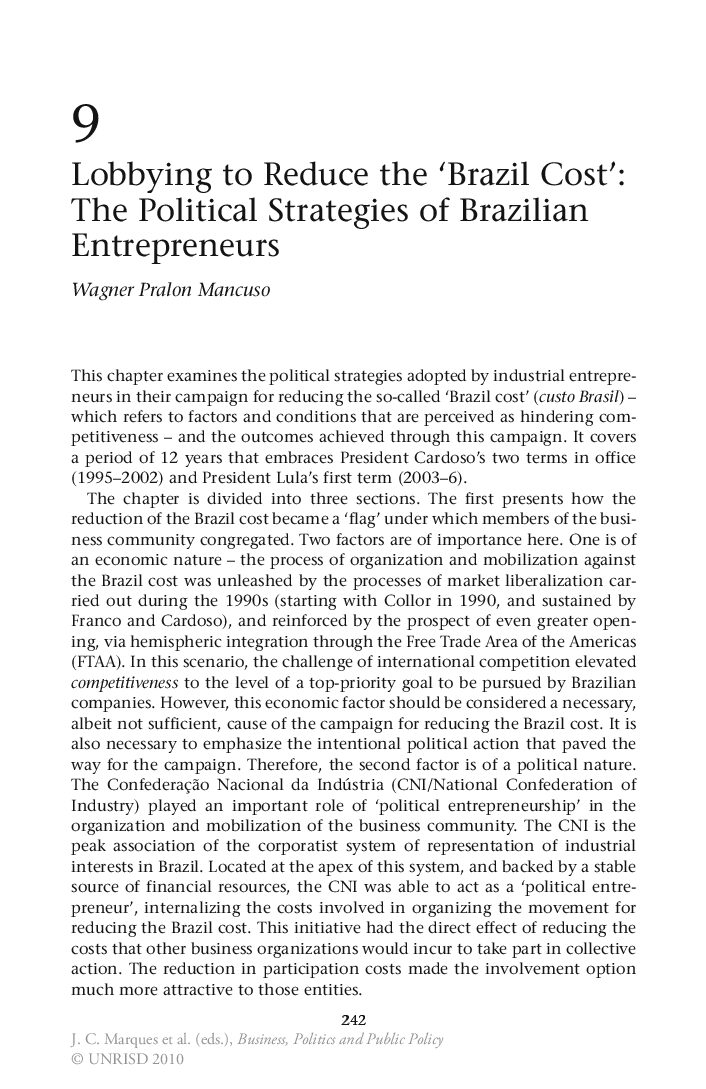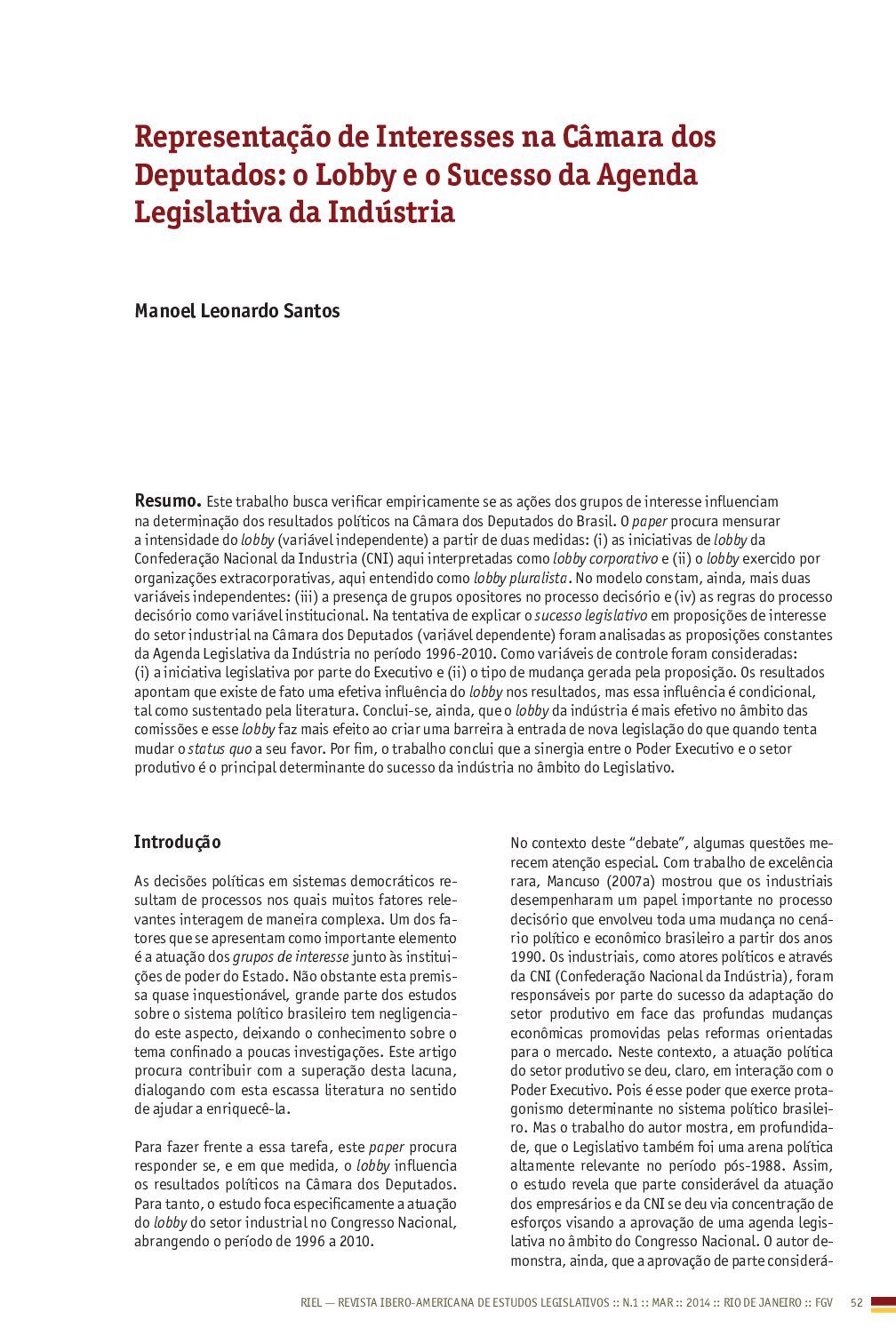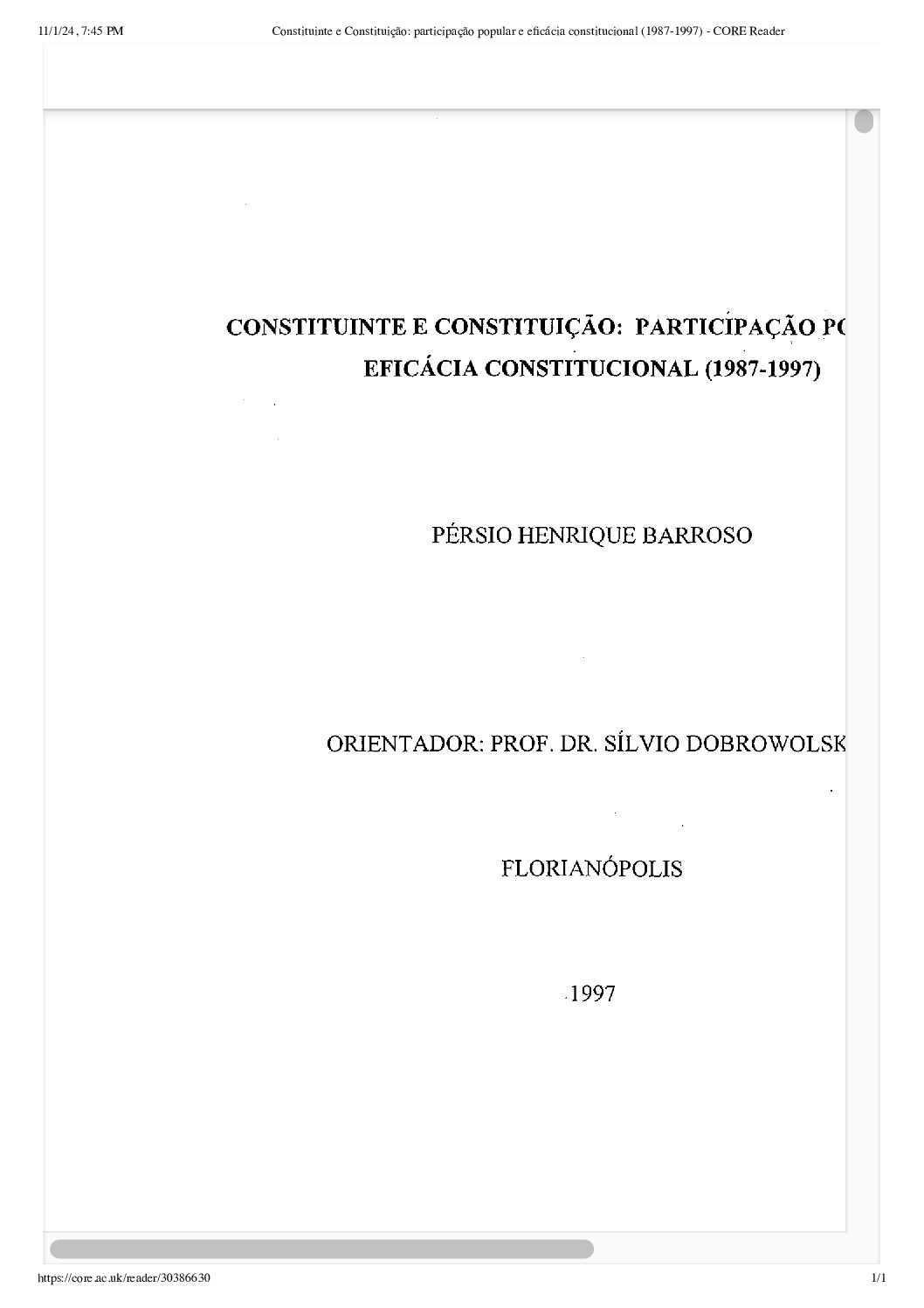
Lobbying to Reduce the ‘Brazil Cost’: The Political Strategies of Brazilian Entrepreneurs
1 de November de 2024
Representation of Interests in the Chamber of Deputies: Lobbying and the Success of the Industry Legislative Agenda
5 de November de 2024Author: PERSIO HENRIQUE BARROSO
Abstract:
This paper deals with popular participation in the constituent process carried out between February 1987 and October 1988, and also assesses whether or not such participation continued in the sequence of Brazilian political history, focusing on the implementation of the constitutional norms resulting from that political battle. To this end, it begins by conducting a retrospective analysis of the State and Law in Modernity, contextualizing the emergence of new social movements as agents of a new citizenship, which seeks to redefine the concepts of democracy and law based on its own experiences and needs, as a consequence of the crisis of legitimacy of the traditional political-legal model, using participation (far beyond the act of voting) and the practices of informal law as powerful instruments of pressure. In this sense, the constituent moment is extremely rich in verifying the action of new social movements as pressure groups, gaining space in the institutional scenario, institutionalizing, in the new established order, many of their interests and aspirations. Although the Constitution as a whole represents not only these aspirations, but also other opposing ones, and for this very reason, it can be said that it reflects the entire heterogeneity of Brazilian society. However, the formal achievement does not guarantee the actual implementation of the new rights. Hence, it is essential to evaluate the continuity of the popular mobilization in favor of the implementation of the Constitution and the judicial interpretation undertaken, especially by the Supreme Federal Court, the “guardian of the Constitution”, in order to arrive at an answer to the purpose raised in this research.

